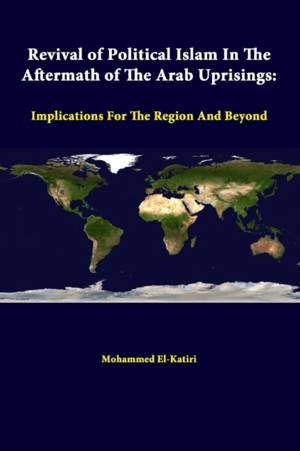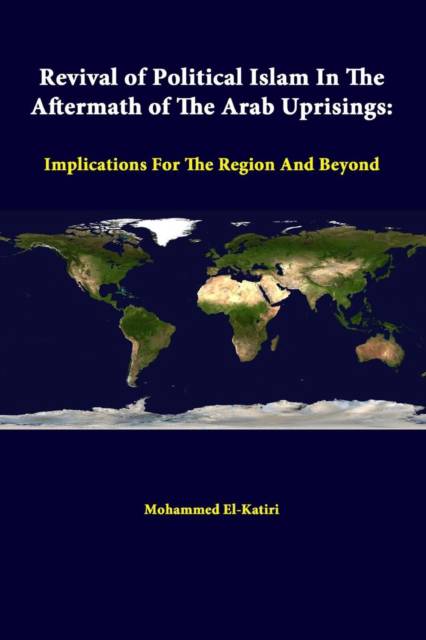
- Afhalen na 1 uur in een winkel met voorraad
- Gratis thuislevering in België vanaf € 30
- Ruim aanbod met 7 miljoen producten
- Afhalen na 1 uur in een winkel met voorraad
- Gratis thuislevering in België vanaf € 30
- Ruim aanbod met 7 miljoen producten
Zoeken
Revival Of Political Islam In The Aftermath Of The Arab Uprisings
Implications For The Region And Beyond
Strategic Studies Institute, Mohammed El-Katiri
Paperback | Engels
€ 21,45
+ 42 punten
Omschrijving
Regime change during the Arab Spring allowed Islamist political forces that long had been marginalized to achieve political influence in Tunisia, Egypt, and Libya. Meanwhile, Morocco's first government led by an Islamist party has been in power since January 2012. This trend caused widespread concern over the future direction of these states; but despite the tragic example of Egypt, few negative predictions have yet been borne out. In this monograph, Dr. El-Katiri, a British analyst with many years of experience in reporting on the Middle East and North Africa, cautions against an overly simplistic assessment of this rise in the influence and power of political Islam. He uses an extensive range of source material to show that the political crises besetting each of these Islamist governments are not necessarily of their own making, but instead are determined by objective circumstances. He also describes how in several key respects the aims of Islamist parties are in line with U.S. aspirations for the region.
Specificaties
Betrokkenen
- Auteur(s):
- Uitgeverij:
Inhoud
- Aantal bladzijden:
- 62
- Taal:
- Engels
Eigenschappen
- Productcode (EAN):
- 9781312392762
- Verschijningsdatum:
- 28/07/2014
- Uitvoering:
- Paperback
- Formaat:
- Trade paperback (VS)
- Afmetingen:
- 152 mm x 229 mm
- Gewicht:
- 104 g

Alleen bij Standaard Boekhandel
+ 42 punten op je klantenkaart van Standaard Boekhandel
Beoordelingen
We publiceren alleen reviews die voldoen aan de voorwaarden voor reviews. Bekijk onze voorwaarden voor reviews.











